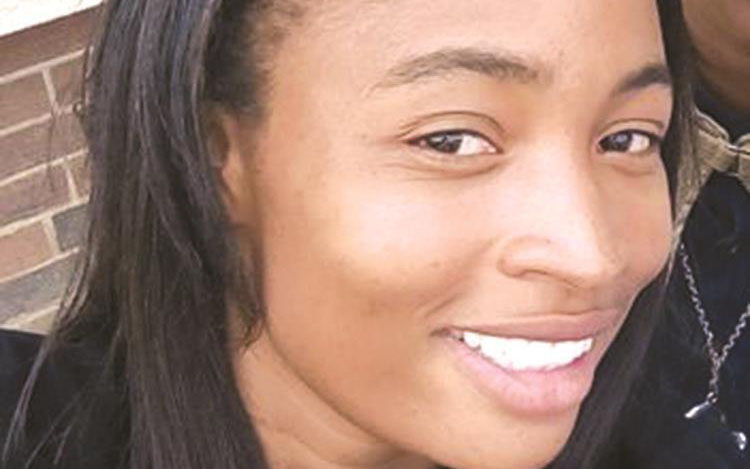‘My battle with polycystic ovarian syndrome’

Praise Bvumbamera Correspondent
In January this year, I started experiencing severe stomach pains and thought they were normal abdominal disturbances.
Despite taking medication and home remedies for two weeks, the pain did not go away.
I decided to visit a doctor in Marondera about 70km from Zimbabwe’s capital, Harare, given that my parents stay there.
The doctor suggested that I undergo an ultra sound scan to diagnose the problem.
The results stated that I had a polycystic ovarian syndrome. Polycystic ovary syndrome (PCOS) is a set of symptoms due to elevated androgens (male hormones) in women. Signs and symptoms of PCOS include irregular or no menstrual periods, heavy periods, excess body and facial hair, acne, pelvic pain, difficulty getting pregnant, and patches of thick, darker, velvety skin.
I was then referred to a gynaecological specialist in Harare at Baines Intercare.
With no medical aid, their costs were beyond our reach and we settled for the affordable Government-owned Parirenyatwa Group of Hospitals where the fees were relatively cheaper.
Towards end of January we went to Parirenyatwa to book for an appointment at the gynaecology clinic. They had a backlog and we had to wait for a week to meet the specialist.
On the appointment date, we travelled from Marondera to Parirenyatwa only to find out that doctors were on strike.
The pain was getting more intense with each passing day and I wasn’t keen on going back home without being attended to.
However, we had no option since we had chosen to use a public hospital whose doctors were partaking in industrial action.
My situation deteriorated and my parents had to run around to look for money so that private doctors attend to me. Fortunately they raised the money.
After three days of relentless fundraising, we ended up at Baines Intercare, a facility we had originally avoided because of costs.
The specialist said I had to undergo another ultra sound scan and some blood tests to ascertain what the problem was.
These prescribed tests did not come cheap and again, my parents had to run around to raise the money required.
The ultra sound scan, blood tests were done and established that I have a cancerous hormone in my stomach.
We were referred back to Parirenyatwa to see an oncologist as a matter of urgency.
The rush to Parirenyatwa did not amount to anything since the doctors were still on strike.
The private doctor who had assisted us then made arrangements for us to see the oncologist despite the strike that was still ongoing.
I went to Parirenyatwa the following day and underwent more blood tests.
These tests must have raised an alarm with the doctors as I was and was suddenly admitted to start chemotherapy sessions.
Another challenge emerged.
The doctors said my blood count was below average. This meant two pints of blood had to be transfused urgently as it was impossible for me to undergo chemotherapy without the required blood count.
The whole ordeal was starting to take a toll on my mental health. I knew my parents did not have the money to buy the blood pints priced at $120 each.
Family friends came through and assisted with the money in time of need.
After sourcing the money, it still took three days for me to get the blood from the National Blood Services.
There was reluctance on the nurses` part as they refused to follow up with the blood bank saying the communication was to come from the latter.
The situation was turning worse and my father contacted the blood bank out of desperation.
To our surprise, the personnel at the NBS said they were waiting for the nurses to contact them.
Finally, I had the blood transfusion and had to start the chemotherapy, but again unfortunately I could not start because the required drugs were not yet enough.
Again, my parents spent three days looking for money to buy the drugs that are pricey.
After a struggle, we got the drugs and the chemotherapy commenced.
I spent days and nights leaning in bed at Parirenyatwa Group of Hospitals where I was receiving my first session of chemotherapy.
I was in great pain during the chemotherapy.
The doctors said the pain was as a result of side effects of chemotherapy and would gradually subside.
Two weeks elapsed and the pain was worsening. I became tired of staying in hospital but the doctors kept telling me that these were normal side effects.
Later I was discharged, but the pain had not changed.
I started doubting if these were still effects from the chemotherapy.
A week after being discharged, I failed to travel back for the second chemotherapy session because my stomach had started to swell. The pain was excruciating.
The situation was getting out of hand and I was rushed to Marondera General Hospital and the doctors diagnosed intestinal obstruction.
They say this was the reason behind the pain, not the chemotherapy side effects.
They quickly placed a tube through my nose which caused discomfort.
An ambulance was arranged to urgently ferry me to Harare Central hospital since the case had reached emergency level.
At Harare Central Hospital my woes mounted.
The doctor whom we had been referred to was nowhere to be seen.
I spent the next two days before receiving any meaningful treatment despite having been transported with an ambulance.
My situation deteriorated as my family helplessly looked on.
For seven days I became unconscious and my narration is now based on what I was told transpired.
My father took a video of what he thought were going to be my last moments.
A nurse alerted security guard who made him delete it.
My father demanded to take me home since being in hospital was a sheer waste of time.
The scene he caused moved the nursing staff to act. They contacted a senior doctor who booked my surgery.
They removed parts of my intestines which the doctors believed had been burnt by the chemotherapy, untangled parts where they were obstructed and sewed them (laparatomy for intestinal obstruction).
I am told I was so weak and after the operation they thought they were losing me.
From the theatre I was taken to the intensive care unit where I was closely monitored and I was lying there almost dead.
Before they could conclude, I coughed and they realised I was still in the fight after they resuscitated me.
I felt relieved from the stomach pain except for the pain from the surgery.
I was discharged from the hospital with a $2 400 hospital bill which included the fee for my surgery.
There were no further complications from that point but I had to go back to Parirenyatwa for blood tests.
It established that the cancerous hormone had reduced in size but still needed chemotherapy.
The oncologists suggested that I resume chemotherapy sessions and so far I have received two out of the six sessions.
They going on well except for the severe after effects of chemotherapy drugs as well as scarcity of the drugs which are costly.
Each chemotherapy session costs $749, which is beyond my parents` reach. My hope is that the recovery process continues with less obstacles and I am grateful to everyone who lent their hand in the process.
The past few months have not been easy for me and my family.










Comments